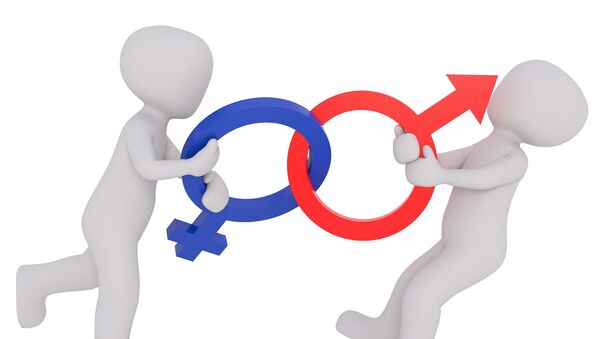The UK's advertising watchdog has announced that it will officially ban what it describes as advertisements that promote "gender stereotypes that are likely to cause harm, or serious or widespread offence."
To justify the move, the Committee of Advertising Practice (CAP) has elaborated that stereotypes in ads risk contributing to "how people see themselves and their role in society," and as a consequence can prevent people from social advancement.
Fantastic to see this announcement on #gender depiction in advertising by @CAP_UK. https://t.co/rd20EeXykm
— Lisa Ellwood (@LisaEllwood) 14 December 2018
Despite the inherent subjectivity in what some people may find "offensive" the ban will cover all television and public advertisements that depict things such as men struggling with household chores like cleaning or changing a baby's nappy, or females performing less academically than males, according to the regulator. In other words, it will apply to ads where a person is depicted as struggling to fulfil a task because of their gender.
Following research, we will be enforcing tougher standards for superimposed text in TV ads from March 2019. Here's all you need to know in 90 seconds: pic.twitter.com/L60e2O4Qyg
— ASA (@ASA_UK) 29 November 2018
The move, which some will undoubtedly see as inseparable from the wider encroachment of ‘political correctness,' comes on the heels of a year-long inquiry by the Advertising Standards Authority (ASA) into what it ambiguously deems "potentially harmful" adverts that reinforce gendered roles, which may in turn restrict people's choices and opportunities in life. According to the Telegraph, other examples of this new media taboo will include advertisements that appear to place expectations upon the ideal male physique.
Ads must not include gender stereotypes that are likely to cause harm, or serious or widespread offence https://t.co/6ZXyuJ8my6 pic.twitter.com/Gen9VUveWP
— CAP (@CAP_UK) 14 December 2018
The ASA vaguely defines gender stereotypes as relating "to body image, objectifaction, sexualisation, gender characteristics and roles, and mocking people for not conforming to gender stereotypes." In their July 2017 report, the ASA used 157 people from across the UK for a range of interviews on the issue. But by their own admission, another report "did not able researchers to identify causality," however they say that it found a correlation between "high media exposure" and an "acceptance to the traditional belief that woman are sexual objects whilst men are sexually driven."
Ella Smillie, who is the ‘gender stereotyping project lead' at CAP has been widely quoted as saying that the organisation's "review of the evidence strongly indicates that particular forms of gender stereotypes in ads can contribute to harm for adults and children by limiting how people see themselves and how others see them and the life decisions they take."
If you get offended by seeing a woman unable to park a car or a man struggling to change a nappy in an advert then you really need to re-evaluate how you see the world.
— Iain Ross (@infamousmofo) 14 December 2018
CAP has however said that evidence from the aforementioned reviews did not show that gender stereotyping in ads is always an issue, or that the use of, to use that phrase again, "potentially harmful" stereotypes in advertising is a widespread phenomenon.
Shahriar Coupal, the direct at CAP, has been cited as saying that: "Harmful gender stereotypes have no place in UK advertisements. Nearly all advertisers know this, but for those that don't, our new rule calls time on stereotypes that hold back people and society."
“Evidence” lol. There is no evidence, just dozens of opinions on the matter and a shitload of studies using pseudoscience to claim evidence exists.
— ΛЯSΣПΛL ЯΣPӨЯT (@ArsenalReport) 14 December 2018
The new rule will come into place on June 19 2019 and shall reportedly be subject to a 12-month review thereafter.
FFS, the genepool needs some massive clean up if this is the drivel people come up with. Know what? Let's put on a niqab on everyone, or better, replace all humans with genderless robots.
— Will Riker (@WillTRikerNL) 14 December 2018


